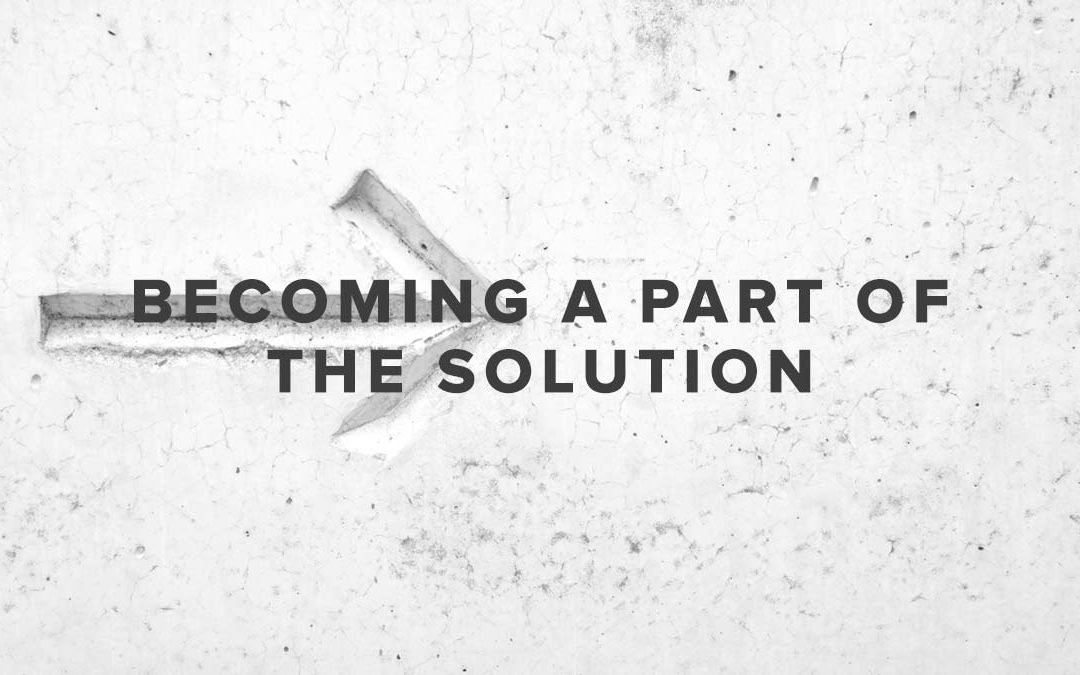It is no secret that religion is one of the main forces dividing us not only as a culture but also as human beings throughout the world today. Some of the most terrible acts of terror, genocide, even wars themselves have been committed or pursued on religious grounds and convictions. It was these sorts of things that led James Madison, the fourth president of the U.S., to say, basically, that there is no “cure” that can stop the violence that religious conviction can create; we can only hope to contain it (just like Kobe, but I digress). There are so many different opinions and no one willing to listen that it creates just as much confusion as anything else! However, does it really have to be this way? Does religion have to be part of the problem or can it also be a part of the solution? I think the latter is possible and here are a few reasons why.
People can be problems
First off, I’m convinced that religious beliefs are not the problem so much as the people who carry them. I’m not sure if you’ve noticed, but people can be majorly flawed. And I’m sure you’ve heard the verse, whether you wanted to or not, that “all have sinned and fallen short of the glory of God” (Romans 3:23). Yes, we’re sinful and fall short. That doesn’t give anyone the license to point that out to other people, hold it against them, much less use it as an excuse to commit horrific sinful acts just because we’re all sinful anyway. As human beings, we can take even the most simple or beneficial teachings and interpret them in ways that are totally different from what was trying to be said or taught. Add religion to this mix and you can turn a lot of people off really quick. Flawed people can project a flawed message, and this is many people’s opinion of religion and belief in general. As John Mayer says, belief is “the chemical weapon for the war that’s raging on inside.” Or, as Jesus says, “from the overflow of the heart the mouth speaks” (Luke 6:45). In other words, what we say and do says a lot more about who we are than anything else. If poison is coming out, poison is what’s inside eating away at the person projecting it.
Be careful what you’re passionate for
Second, and with that being said, we have to be careful what we’re passionate about. I’m not saying that being passionate about what you believe is wrong, but as soon as passions are followed unreflectively, it can lead to trouble. Another word that the Bible uses for passion is “zeal,” and there are two types of “zeal” that Paul addresses directly, that which is not reflective and that which is. He describes people, again in Romans, who “have a zeal for God, but it is not enlightened” (Romans 10:2). However, a couple chapters later he encourages his readers, “Do not lag in zeal, be ardent in spirit, serve the Lord” (Romans 12:11). So, it seems there is a difference between a passion that unreflectively runs wild, and a passion that is grounded in serving the God who is love and taught us to treat those with whom we disagree, with respect. We definitely want to follow in the steps of the latter.
Seek peace
This should lead us to, thirdly, seek peace. Keeping with the theme of Romans, Paul advises his readers, “As far as it depends on you, live at peace with everyone” (Romans 12:18). The word Paul uses for “peace” refers to, literally, putting something back together which has been separated. This is related to the familiar Hebrew term, shalom, though, shalom seems to carry a much deeper quality of well-being and justice for the entire planet and even cosmos.
In the midst of all our attempts to come up with better and exclusive ways of explaining the world around us, we cannot forget how to relate to people within it. That should always be the primary focus of any religion, and especially for Christians who have been called to live, learn, and love in the way of Jesus. In seeking peace for and with other people, we are also seeking peace for ourselves. With every conversation or relationship we have, we have the ability to pursue peace or to give the world further reason to not listen to what we have to say. We have the ability to make our faith a divisive weapon or a redeeming tool. We have the ability to either become a part of the problem or become a part of the solution.


Hi Rusty,
We said! I am challenged almost daily with the words of my daily reading of scripture and what I see exemplified in the name of Jesus, Alla, God, even Buddha. When I see so many “religious” people of all faiths who miss the great call of all, “Love one another. “